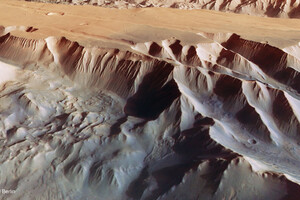And this is not a potato.

The colonization of Mars is one of the goals that mankind aims to achieve in the future. Once we can overcome all the difficulties associated with traveling to this planet, we will have to figure out how to make life here possible and sustainable. A major part of this will be growing crops, Science Alert reports.
NASA experiments have shown that the landscape of the Red Planet is suitable for growing grain crops. But it is not so easy to do this: dust and sand are not only devoid of useful substances and microbes, but also full of salts and minerals that make it difficult for plants to live. objects
The authors of the new work proposed a new way: alfalfa plants. According to the researchers, this forage crop can survive in volcanic soil similar to Martian soil and then be used as fertilizer to grow crops such as turnips, radishes and lettuce.
“The low nutrient content of Martian soil and the high salinity of the water make it unsuitable for direct use to grow food crops on Mars. Therefore, it is important to develop strategies to increase the nutrient content of Martian soil and desalinate salt water for long-term missions,” the researchers wrote in their paper.
During previous studies, scientists found that it would be difficult for plants to grow on Martian soil. without adding nutrients to it. Alfalfa is needed for this.
The researchers created a soil in laboratory conditions that was as similar as possible to the Martian regolith, and then tested how the seeds of various plants would grow in it. It turned out that alfalfa can grow in it in the same way as in ordinary soil, without the addition of fertilizers.
Then the scientists repeated the experiment, using alfalfa as fertilizers. They managed to grow turnips, radishes and lettuce – plants that do not require special care, grow quickly and do not need a lot of water.
At the same time, there is one problem: fresh water is needed to grow plants. Research suggests that the salty water available on Mars may be treated by bacteria and then filtered through volcanic rock. As a result, you can get fresh water, which is necessary for plant growth.
There are still many questions that need to be answered. In particular, it is not known how accurately we can reproduce Martian soil while on Earth. It's likely that once we're on the Red Planet, the soil will behave differently than it did in the lab.
Related video
The lab soil was also missing some toxic salts that must somehow be removed from the regolith.
>




